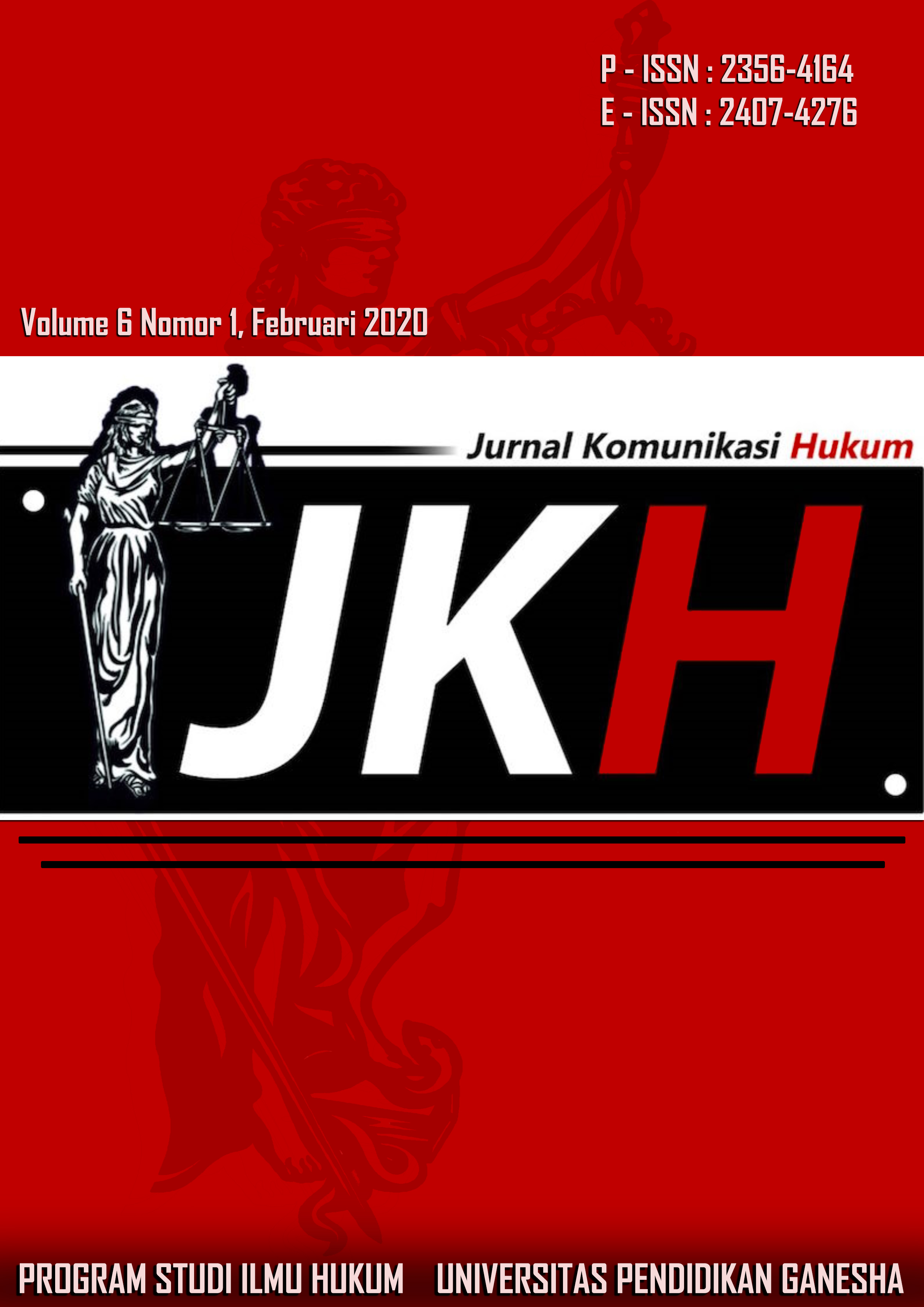PROVISIONS ON DEATH CRIMINAL THREATS IN NARCOTIC LAW IN THE PHILOSOPHICAL BASIS PERSPECTIVE
DOI:
https://doi.org/10.23887/jkh.v6i1.23470Abstract
The threat of capital punishment is seen as an appropriate type of crime threatened against narcotics offenders with the qualifications of producers and dealers, because narcotics is a serious crime and the nature of the offenders who have a network to produce and circulate narcotics for business or economic purposes only so that their actions can cause great danger or have a profound effect on human life and national life in the political, economic, social, cultural and national defense sectors. In the end the deterrent effect with a very severe sentence, including the threat of capital punishment, became the target to achieve the goal of enacting Law Number 35 Year 2009 on Narcotics in addition to providing narcotics for health needs and scientific development, also intended to reduce the quantity of perpetrators of abuse and circulation dark narcotics. Although it is realized that with the enactment of this law, the number of drug abuse and distribution by the perpetrators does not deter and can educate producers and distributors of the sentences not proportional to their actions compared to the consequences suffered by victims. In other words, the target of the regulation of death penalty in this law is not only for death row inmates, but also for potential perpetrators who have not yet been sentenced to death. Therefore, the threat of capital punishment aims to suppress the high crime rate, which in the end the community becomes orderly, peaceful and safe.
Keywords: narcotics, capital punishment, punishment
Downloads
Published
How to Cite
Issue
Section
License
Authors who publish with this journal agree to the following terms:- Authors retain copyright and grant the journal right of first publication with the work simultaneously licensed under a Creative Commons Attribution License that allows others to share the work with an acknowledgement of the work's authorship and initial publication in this journal.
- Authors are able to enter into separate, additional contractual arrangements for the non-exclusive distribution of the journal's published version of the work (e.g., post it to an institutional repository or publish it in a book), with an acknowledgement of its initial publication in this journal.
- Authors are permitted and encouraged to post their work online (e.g., in institutional repositories or on their website) prior to and during the submission process, as it can lead to productive exchanges, as well as earlier and greater citation of published work (See The Effect of Open Access).
Authors who publish with this journal agree to the following terms:
- Authors retain copyright and grant the journal right of first publication, with the work [SPECIFY PERIOD OF TIME] after publication simultaneously licensed under aCreative Commons Attribution License that allows others to share the work with an acknowledgement of the work's authorship and initial publication in this journal.
- Authors are able to enter into separate, additional contractual arrangements for the non-exclusive distribution of the journal's published version of the work (e.g., post it to an institutional repository or publish it in a book), with an acknowledgement of its initial publication in this journal.
- Authors are permitted and encouraged to post their work online (e.g., in institutional repositories or on their website) prior to and during the submission process, as it can lead to productive exchanges, as well as earlier and greater citation of published work (See The Effect of Open Access).












